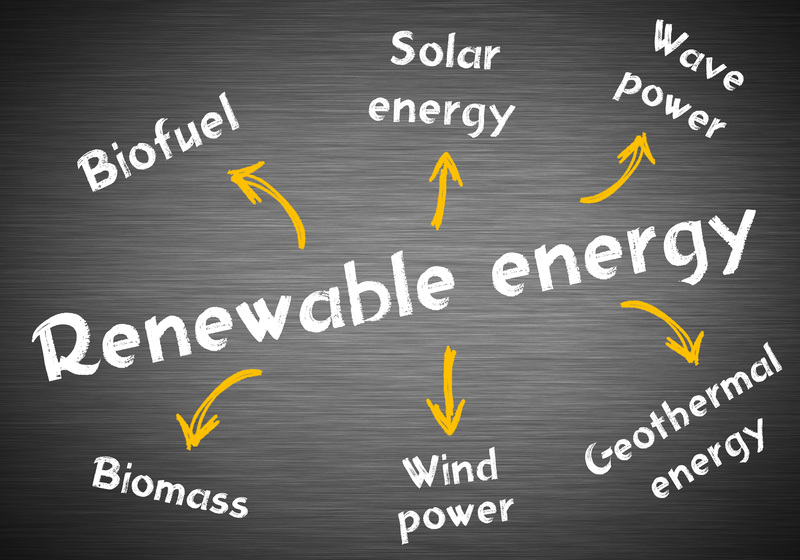Negative Effects of Waste Overflow on Planet and People
Posted on 25/10/2024
Waste overflow has become a pressing issue in modern society, leading to severe environmental degradation and significant health risks for humans. Despite advancements in waste management systems, the ever-increasing volume of waste has outpaced the capacity of these systems. This article explores the negative effects of waste overflow on both the planet and its inhabitants, emphasizing the urgent need for comprehensive waste management solutions.
Environmental Degradation
The environmental impact of waste overflow cannot be overstated. When waste management systems are overwhelmed, waste often ends up in landfills, incinerators, or worse, in natural environments like oceans and forests. These mismanaged waste streams contribute to pollution, habitat destruction, and climate change.
Landfill Overflow and Groundwater Contamination
Landfills are designed to manage solid waste, but they have limited capacity. When landfills overflow, excess waste is often dumped in unauthorized locations. Landfill sites are notorious for their potential to contaminate groundwater. As waste decomposes, it produces leachate, a highly toxic liquid that can infiltrate groundwater supplies, endangering ecosystems and human health alike.
Ocean Pollution and Marine Life
Waste overflow has a devastating effect on marine environments. Plastics, in particular, pose a significant threat. Once they enter the ocean, plastics do not decompose but break down into smaller microplastics, which are ingested by marine life. This not only affects the health of marine species but also has implications for humans who consume seafood. The ingestion of microplastics by marine life can lead to physical harm, reproductive issues, and even death, disrupting marine ecosystems and biodiversity.
Air Pollution from Incineration
Incinerating waste is another method employed to manage waste overflow. However, this process releases a variety of harmful pollutants into the atmosphere, including dioxins, furans, and heavy metals. These airborne contaminants contribute to air quality degradation, posing risks to both environmental and human health. Additionally, the carbon emissions from incineration processes exacerbate climate change by increasing greenhouse gas concentrations in the atmosphere.

Health Risks for Humans
The repercussions of waste overflow extend beyond environmental damage; they also pose significant health risks for human populations. Exposure to improperly managed waste can lead to a variety of health issues, ranging from infectious diseases to chronic conditions.
Infectious Diseases
Unmanaged waste, particularly organic waste, serves as a breeding ground for pathogens. Bacteria, viruses, and parasites thrive in decomposing waste, increasing the risk of infectious diseases. For instance, the accumulation of waste creates conditions conducive to the proliferation of disease-carrying vectors like rodents and insects. These vectors can transmit diseases such as cholera, typhoid, and dengue fever, particularly in underdeveloped regions with inadequate waste management infrastructure.
Respiratory Issues
As previously mentioned, waste incineration releases harmful pollutants into the air. Long-term exposure to these pollutants can lead to severe respiratory problems. For example, dioxins and furans are known to have carcinogenic properties, while particulate matter from burning waste can cause chronic respiratory diseases such as asthma and bronchitis. Communities living near incineration plants or landfills are particularly vulnerable to these health risks.
Soil Contamination and Food Safety
Leachate from overflowing landfills can contaminate soil, introducing a range of toxic substances into agricultural land. Plants absorb these contaminants, which then enter the food chain, posing a risk to human health. Consuming contaminated food can lead to chronic health issues, including various forms of cancer and neurological disorders. This illustrates the far-reaching impact of waste overflow, affecting not only immediate environmental health but also long-term human wellbeing.
Socio-Economic Implications
Beyond environmental and health risks, waste overflow also has profound socio-economic implications. The cost of managing waste overflow, health care expenses for treating diseases caused by waste-related pollution, and the loss of biodiversity can significantly strain a country's resources.
Economic Costs
The economic burden of waste management increases with waste overflow. Governments need to allocate substantial funds to build new landfills, upgrade waste processing facilities, and clean up polluted environments. Additionally, healthcare costs associated with treating diseases linked to poor waste management can be exorbitant. Developing countries, in particular, face challenges in financing these essential activities, leading to a vicious cycle of inadequate waste management and escalating health and environmental issues.
Impact on Tourism
Regions that suffer from waste overflow often see a decline in tourism. Tourists are unlikely to visit areas plagued by polluted beaches, unsightly landfills, and air quality issues. A drop in tourism can have severe economic repercussions for local communities that rely heavily on tourism for their livelihood. This loss of income further hampers the ability to invest in effective waste management solutions, perpetuating the cycle of degradation and economic hardship.
Social Inequality
Waste overflow disproportionately affects vulnerable populations. Low-income communities are often situated near landfills and incineration plants, exposing them to higher levels of pollution and associated health risks. This exacerbates social inequality, as these communities bear the brunt of the negative impacts of waste overflow while having the least capacity to advocate for better waste management practices. Addressing the issue of waste overflow, therefore, is also a matter of social justice, ensuring that all populations have the right to a healthy environment.

Solutions and Mitigation Strategies
While the challenges posed by waste overflow are significant, several strategies can help mitigate its impact. Implementing effective waste management practices, investing in innovative technologies, and fostering a culture of sustainability are crucial steps.
Improvement in Waste Management Systems
To address waste overflow, it is imperative to improve existing waste management systems. This includes increasing the capacity of landfill sites, promoting recycling programs, and developing efficient waste sorting and processing facilities. Governments and private sectors need to collaborate to invest in modern waste management infrastructure that can handle the increasing volume of waste.
Promoting the Circular Economy
A significant shift towards a circular economy, where products are designed for reuse, repair, and recycling, can drastically reduce waste generation. Encouraging businesses to adopt sustainable practices and designing products with longer lifespans can mitigate the volume of waste that ends up in landfills and incinerators. Consumers also play a critical role by making conscious purchasing decisions and supporting companies that prioritize sustainability.
Innovative Waste Management Technologies
Emerging technologies offer promising solutions to the problem of waste overflow. For instance, advancements in waste-to-energy technologies can convert waste into renewable energy, reducing the reliance on fossil fuels and decreasing greenhouse gas emissions. Similarly, technologies that facilitate the detailed sorting of waste can enhance recycling rates and reduce the amount of waste that requires disposal.
Public Awareness and Education
Raising public awareness about the adverse effects of waste overflow and promoting sustainable waste management practices are essential for long-term change. Educational programs that focus on the 3Rs--Reduce, Reuse, and Recycle--can empower individuals to make informed decisions about waste generation and management. Schools, community organizations, and media campaigns can play a pivotal role in fostering a culture of environmental responsibility.
Conclusion
The negative effects of waste overflow on our planet and its inhabitants are profound and multifaceted. Environmental degradation, health risks, and socio-economic implications highlight the urgent need for comprehensive waste management solutions. By improving waste management systems, promoting the circular economy, investing in innovative technologies, and raising public awareness, we can mitigate the impact of waste overflow and safeguard the health of our planet and its people. The responsibility to address this crisis lies with all of us--governments, businesses, and individuals alike.
Latest Posts
Hard Waste: Disposal Guidelines
Large Furniture Disposal Techniques
PPE Environmental Impact Mitigation



